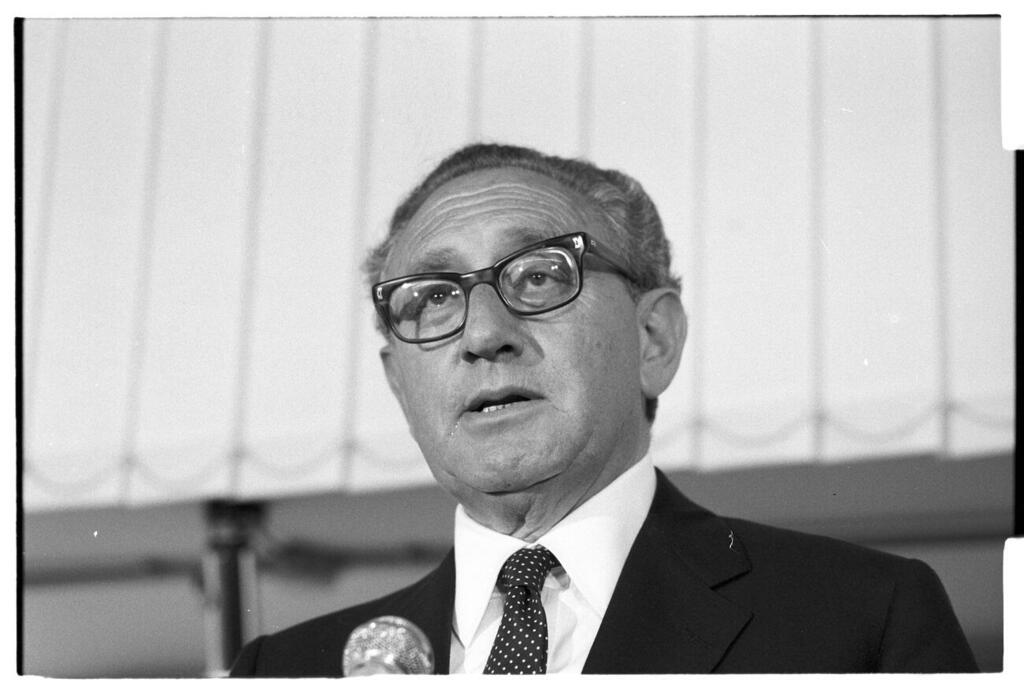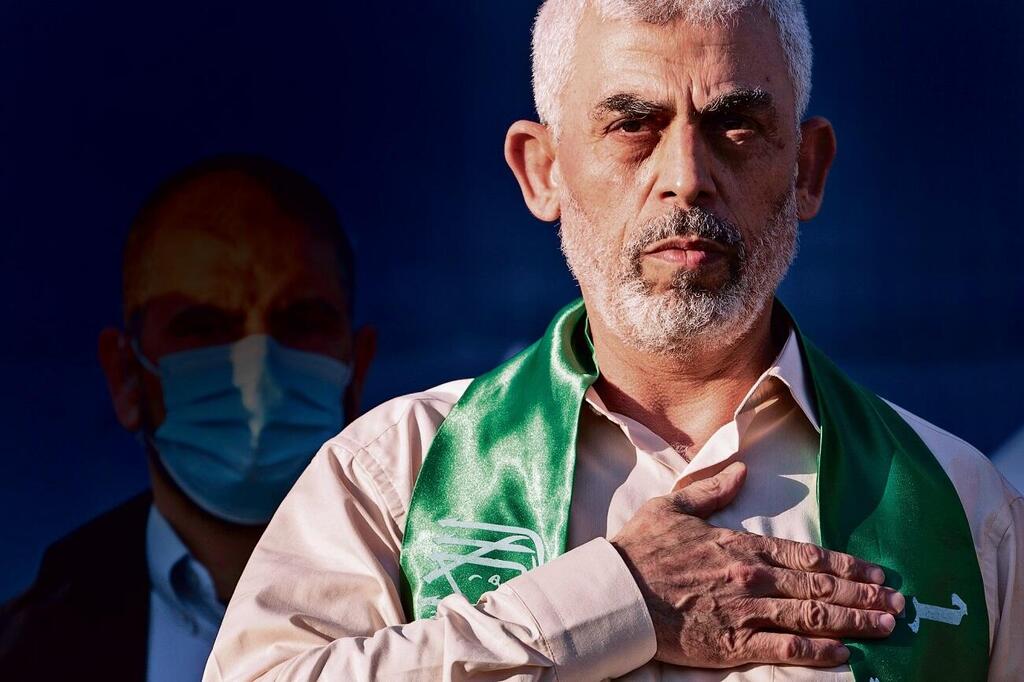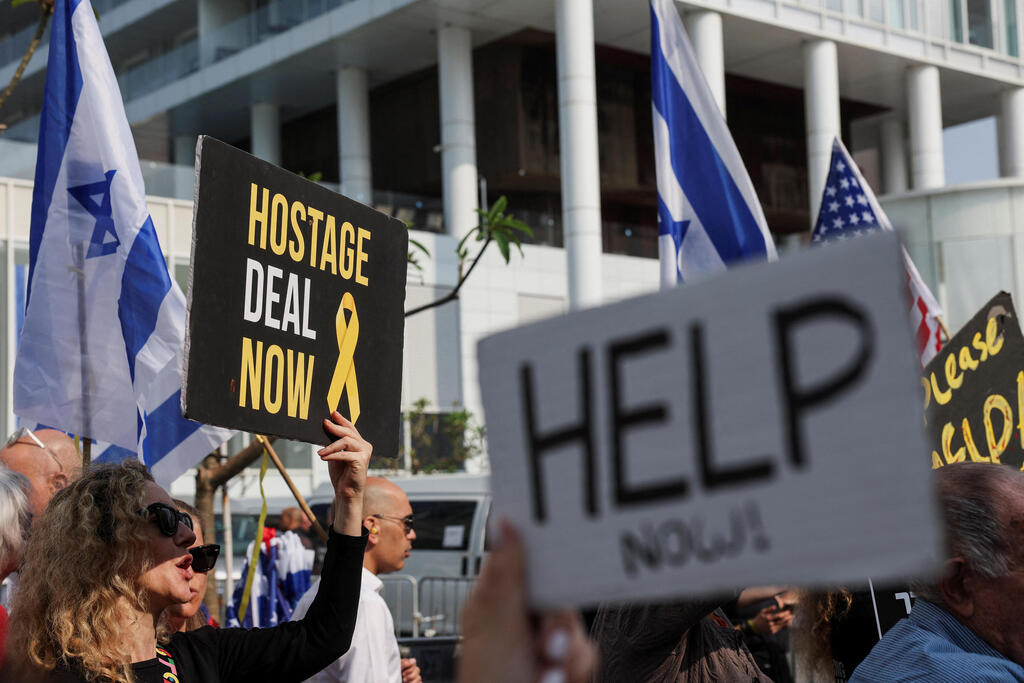Getting your Trinity Audio player ready...
The details of the deal to return the Israeli hostages have yet to be published, but early indications suggest that it will serve the interests of both Hamas and Washington while neglecting those of Israel. Furthermore, it poses a significant threat to Israel, potentially an existential one.
Since the Yom Kippur War in October 1973, the U.S. has made great efforts to prevent Israel from emerging stronger, including suspending the airlift. U.S. Secretary of State Henry Kissinger was later quoted as telling the Soviet ambassador that his nightmare was an Israeli victory in the war.
Even now, it appears the U.S. aims to maintain the Hamas threat in southern Israel by preventing an unequivocal Israeli victory. This has been done by stopping arms and ammunition shipments, imposing restrictions on the use of American-made weapons and assisting Hamas through supplies sent under the guise of "humanitarian aid" to Gaza residents, which clearly end up with Hamas. Now, the push for a deal to return the hostages home seems to follow this pattern. The result is a weakened Israel, more easily manipulated into decisions that serve Washington's interests but are contrary to its own.
Hamas' response to the latest U.S. draft of the hostage release agreement is diplomatic, appearing to say "Yes" while clearly meaning "No."
In standard Arabic, there is no word for "compromise," and Hamas does not intend to come up with one now. The group will not be satisfied until all its demands are met and its conditions fulfilled. With pressure directed solely at Israel and not at Hamas (except for vague demands through Qatar), there is no incentive for Hamas to accept any other agreement.
Initially, Hamas felt it was in existential danger in the early days of the war. However, it now sees no benefit in ending the fighting. Receiving direct aid from the U.S. and broad international support, while the IDF operates under impossible restrictions, creates an ideal situation for Hamas. Even Gaza Strip residents, who initially expressed suffering, now view Hamas as effectively challenging Israel and exacting a high price.
This shift in sentiment is reflected on social media, where opinions now differ from the cries of suffering heard at the war's outset. While journalists' cameras will continue to show scenes of suffering and sadness, a different narrative is emerging online.
At first glance, it seems that all the hostages, both living and deceased, will return to Israel. In reality, this outcome is highly doubtful. However, a deal resulting in the release of hundreds of prisoners from Israeli jails, including senior terrorists with blood on their hands, would significantly bolster Hamas, which has lost thousands of fighters in recent months. Under these conditions, Hamas leader Yahya Sinwar is likely to thwart any deal once he feels he has extracted all he can, leaving some Israeli hostages and bodies as leverage for the future.
It is now clear to everyone that Hamas will remain a governing terrorist force in the Gaza Strip, reinforced by released prisoners, injecting new energy into its ranks and continuing to threaten Israel, particularly the south.
Despite carrying out a horrific attack on the State of Israel—the worst since the Holocaust—Hamas receives one prize after the other instead of being wiped off the face of the earth. This serves U.S. interests in limiting Israel's power.
 Assaf Yishai Photo: Courtesy
Assaf Yishai Photo: CourtesyAs senior Hamas official Ghazi Hamad said in an interview with Lebanon's LBC channel at the beginning of the fighting, referring to the October 7 offensive, "There will also be a second, third and fourth time." With such perceived successes, there is no doubt that this is what Hamas will do.
Only powerful and uncompromising military action throughout the Gaza Strip, combined with continuous pressure on Hamas, will lead to the release of all hostages, living and deceased, aiming to destroy Hamas or at least expel its leadership outside the borders of the country. Any other option would endanger the State of Israel and its residents, as well as the broader Free World, by emboldening non-state terrorist organizations and totalitarian regimes that observe the consequences faced by those who invade another country to massacre its people.
- Assaf Yishai holds a BA in History and an MA in Military and Security Studies. He specializes in terrorism research and is a member of the IDSF Research Department.





